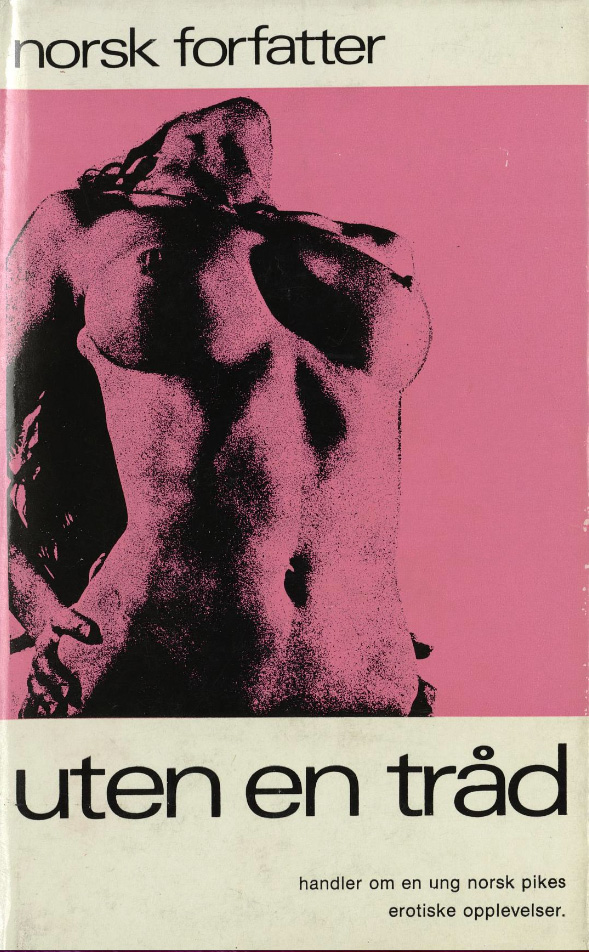(THIS ARTICLE IS MACHINE TRANSLATED by Google from Norwegian)
When the police arrest a book, perhaps to have it sentenced to life in prison, the protests come spontaneously and forcefully, and it is a matter of healthy public opinion. Very few have read the book, but it is not the product in question that is the main issue for most Protestants. It lies in the struggle for a precious principle; freedom of expression in Norway, and people's right to decide for themselves about their reading.
But because the interventions are now aimed exclusively at "fornication" books, there is an obvious risk that the protest movement will be burdened with a confusing mix of principles and pornography.
No book becomes valuable just because it is burned or confiscated. But thanks to the prosecution, pornography gets a kind of crown of martyrdom, at least an indulgent and accepting goodwill, because it has been so lucky to play the role of representative of freedom of expression in the acute conflict.
Then it may be time to highlight the view that pornography is a cost of having full freedom of expression in a country, something we may want to endure in order not to put real values at stake in the next round.
Pornography is a cost of having full freedom of expression in a country, something we may want to endure in order not to put real values at stake in the next round.
In this broader, cultural context, it becomes more necessary than before -
not least in our own, radical circles – to create greater clarity about what pornography is, and above all to make a boundary between pornography and other literature that treats sexuality in an open and bold way.
To even comprehend any of this strange display in freedom, one must remember that sexual enlightenment and a healthier, more harmonious sexual life have for many decades been an important part of a radical view of culture in the Nordic countries. Undoubtedly, it is this tradition they believe to be associated with, these pornography one's intellectual crusaders, and so far the motives may be good enough.
When their attitude often takes on a tragicomic tinge, it is first and foremost because they involuntarily reveal how superficially many have perceived sexual liberation, and how scanty it is with the ability to assess this liberation in a social. cultural and human context. They seem unable to see that pornography has never, and still does not today, contain any real rebellion against bourgeois morality, but on the contrary reflects the effects of the thousand-year-old denial of sexual life, freedom, and anxiety.
In his rather childish actirapture the "ugly" words of pressure and puberty fantasies about a colossal, male potency in bed, they do not discover that they are helping to demonstrate neuroses and poverty in a sexual life that has been detached from its human context by the crushing YOU SHOULD NOT .
They confuse a moral confusion and dissolution in bourgeois society with liberation, and their own alleged free spirit serves to excess as camouflage for a particularly cynical and malicious contempt and fighter. It is most difficult to comprehend that such "radicals" not only manage to accept, but themselves contribute to a few of the most depressing features of pornography of all time: its element of sadism, and the pervasive downgrading of women to objects of use.
By Sigurd Evensmo,
Orientering No. 37 1966
[The post is abbreviated, editor's note]


